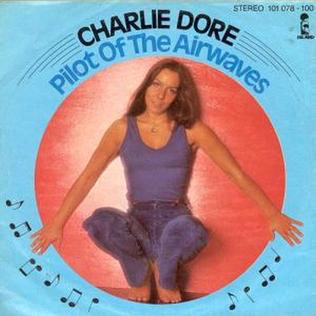The 1979 hit record by Charlie Dore called Pilot of the Airwaves perfectly captured a listener’s sentiment in the lyric:
“I’ve been listening to your show on the radio
and you seem like a friend to me.”
The two most important features radio broadcasting can provide for its listeners are a sense of community, and companionship.

While the pandemic exacerbated the situation, it’s been decades in the making.
Bowling Alone
In 1995, Robert D. Putnam wrote an essay entitled “Bowling Alone: America’s Declining Social Capital”; the essay chronicled the decline in all forms of in-person social interchange. What Putnam saw in his research was that the very foundation Americans had used to establish, educate and enrich the fabric of their social lives was eroding. People were now less likely to participate in their community, social organizations, churches, and even their democracy.
This trend has only been accelerated by social media and the internet with the unintended consequences of the internet being, that it has isolated each of us to a web of one. Algorithms have taken what Putnam saw happening in the last century and put it on steroids in this century, all in the name of driving more efficiency.
Efficiency Bubble
The term “efficiency bubble” means that efficiency is valued over effectiveness in today’s world, it was coined by Will Lion of BBH advertising.
Rory Sutherland, Vice Chairman of Ogilvy in the UK, shared this personal experience that demonstrated the efficiency bubble.
“The absurdity of the efficiency bubble was brought home to me in a recent meeting with an online travel company. The conversation repeatedly included the mantra ‘the need to maximize online conversion.’ Everyone nodded along. Clearly, it is much more efficient for people to book travel through the website than over the telephone, since it reduces transaction costs. But then someone – not me, I’m ashamed to say – said something revelatory: ‘Ah, but here’s the thing. Online visitors to the site convert at about 0.3%. People who telephone convert at 33%. Maybe the website should have a phone number on every page.”
“Perhaps the most efficient way to sell travel is not the most effective way to sell travel. What, in short, is the opportunity cost of being efficient?”
“Nobody ever asks this question. Opportunity costs are invisible; short-term savings earn you a bonus. That’s the efficiency bubble at work again.”
Consolidation is Just Another Word for “Efficiency”
During radio’s massive consolidation, Excel spreadsheets produced by new minted MBAs screamed a multitude of ways to have radio stations become more efficient. Unfortunately, the fast-lane involved the elimination of tens of thousands of radio jobs.
And this is still going on as I write this article; not just in radio, but in television and social media as well.
I don’t ever remember anyone asking about “opportunity costs” being sacrificed in the process.
In the last radio property, I managed, my days would be spent going to corporate meetings about Reductions In Force (RIFs) and coming home with a thumb drive that had dates to open new pages in an Excel spreadsheet, that listed what people and departments were to be eliminated next.
Efficient radio chases away listeners,
effective radio creates them.
Blame It on Competition
When all radio companies chase the same efficiency metrics, they all end up sounding the same, their websites end up looking the same, and in essence, they’ve turned the creative medium of radio into a commodity.
As I wrote about in the article The Birth of Radio in America, deregulation of broadcast now has virtually all of the radio stations in a radio market owned by one or two companies.
Radio always stole great ideas from other radio stations around the country, but most often those stolen ideas were massaged and improved upon in the process. Everyone was upping the game through their own creativity lens, and each radio station had its own unique sound.
Unfortunately, along with corporation radio came the concept of “Best Practices”. This would be yet another contributor to the end of personal creativity at radio stations, all in the name of more efficiency.
Emotions
The pursuit of efficiency is a rational answer to an emotional problem.
The radio business was never built on Excel spreadsheets and doing what was most efficient, it was built by creative people who touched others emotionally. Be it station imaging, air personalities, promotions, contests, community events, advertising or marketing, radio always went for people’s hearts.
I was reminded all of this when I was listening to Music & Jingles LIVE with Jon Wolfert on Rewound Radio. The show featured the creators of the famous 1974 Nine Tape created by Howard Hoffman, Randy West, Russ DiBello and Pete Salant. Listen to this five minute and thirty-seven seconds of audio HERE and you will understand…



 I started my professional radio career in the 10th grade of high school. However, I started dreaming about being a disc jockey for as long as I can remember. I built my own AM/FM radio station in the basement of my parent’s home and broadcast to about a three block radius around my house.
I started my professional radio career in the 10th grade of high school. However, I started dreaming about being a disc jockey for as long as I can remember. I built my own AM/FM radio station in the basement of my parent’s home and broadcast to about a three block radius around my house.